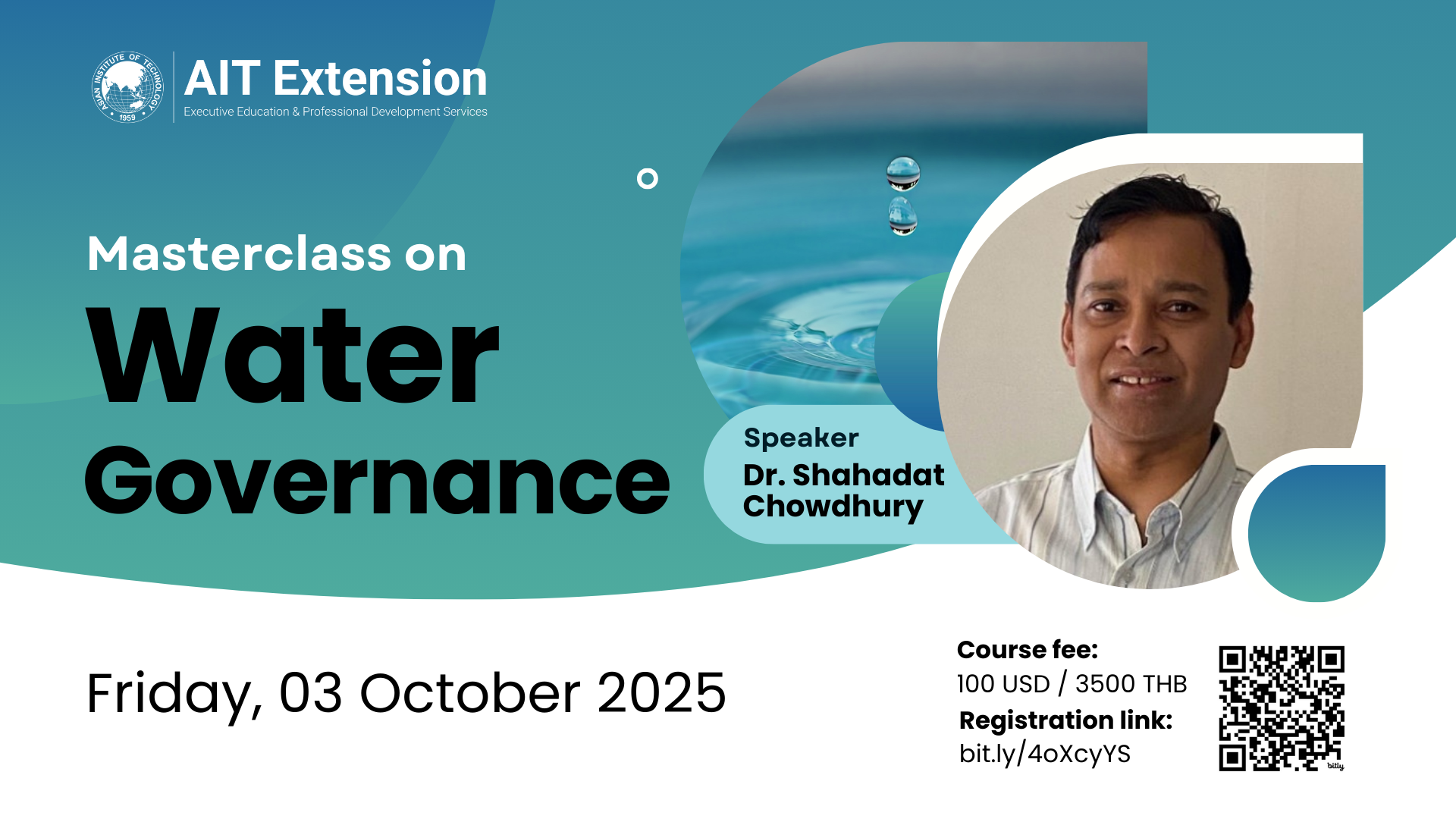Course Introduction
Good water governance is essential for balancing competing demands, safeguarding ecosystems, and supporting sustainable economic growth. Effective governance ensures transparent allocation, fair pricing, and efficient use of water—critical for agriculture, industry, and urban supply. Poor governance often leads to over-extraction, pollution, and costly conflicts. For example, the European Union’s Water Framework Directive sets ecological standards and basin-wide planning, enhancing both environmental and economic outcomes. The Netherlands, through its historic Water Boards, demonstrate how decentralized institutions can protect communities and industries from floods while sustaining agriculture. In Brazil, the National Water Law (1997) introduced participatory river basin management, reducing disputes and improving irrigation efficiency. Australia’s Murray–Darling Basin Plan (2012) legally caps diversions to maintain long-term agricultural viability while protecting water for environment, this will be the case study of this Masterclass as elaborated below.
Australia is the driest inhabited continent in the world with competing demands on limited water resources. The scarcity pushed the advancement of water governance. Large scale irrigated agriculture was introduced about 115 years ago in the state of New South Wales (NSW), Australia. That began the journey to the advanced water resource plans of today done under the NSW Water Management Act 2000. The Masterclass will examine closely the development and implementation journey of water management in NSW. The plan rules deliver negotiated environmental outcomes, provides water security of essential needs, instils certainty to irrigated agriculture, and ensures fair economic return of water while reducing sovereign risks from water allocation.
Learning style: Masterclass, interactive, face to face.
Duration: 1 day
Learning outcomes:
Understanding the importance of good water governance.
Perusing four international best practices.
Studying water governance of NSW, Australia in detail.
Self-evaluating the water governances of participant’s jurisdictions.
Who should attend:
This Masterclass is suitable for a wide range of professionals working or consulting for the government, multinational bodies, irrigation corporations and research institution covering the water sector. The professionals may include senior government officers, water resource engineers, ecologist, environmental lawyers, and land managers.
Speaker’s Profile
 Dr. Shahadat Chowdhury holds a leadership role with the Water Group of the Government of New South Wales, Australia. His team is responsible for allocating the state’s water resources, currently priced over one billion US dollar, through the delegated power of the minister. He played a key part in securing water dur ing the tinderbox drought of 2017-2020. Dr Chowdhury closely witnessed the advancement of water re source management and governance in NSW over last 3 decades. His service included determining water allocation, managing water for environment, securing critical water needs, modelling water delivery, simu lating irrigation and town demands, projecting climate change impact, and generating eco-hydrologic predictions.
Dr. Shahadat Chowdhury holds a leadership role with the Water Group of the Government of New South Wales, Australia. His team is responsible for allocating the state’s water resources, currently priced over one billion US dollar, through the delegated power of the minister. He played a key part in securing water dur ing the tinderbox drought of 2017-2020. Dr Chowdhury closely witnessed the advancement of water re source management and governance in NSW over last 3 decades. His service included determining water allocation, managing water for environment, securing critical water needs, modelling water delivery, simu lating irrigation and town demands, projecting climate change impact, and generating eco-hydrologic predictions.
Dr Chowdhury was also a casual academic with University of Technology Sydney. He was on the board of Faculty of Engineering of University of New South Wales in 2006. Internationally, he contributed to projects in Bangladesh, Thailand, Laos, and Cambodia. Dr Chowdhury obtained his B.Sc. in Civil Engineering from Dhaka, M.Eng. in Water Resources from Bangkok, and Ph.D. in Stochastic Hydrology from Sydney.
